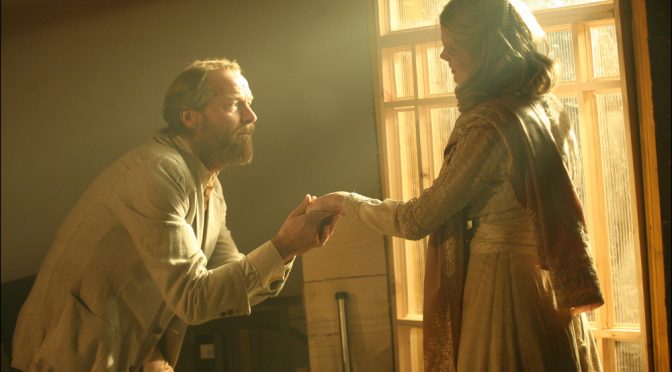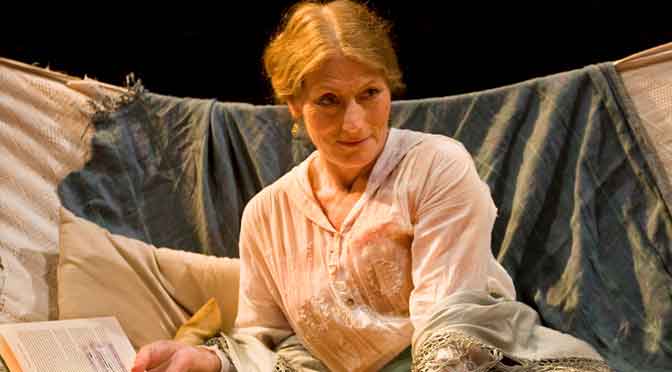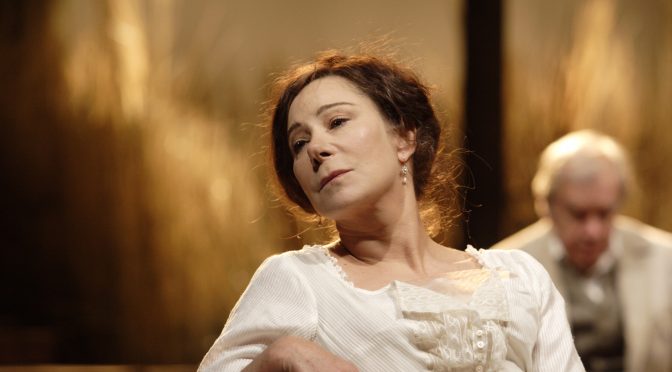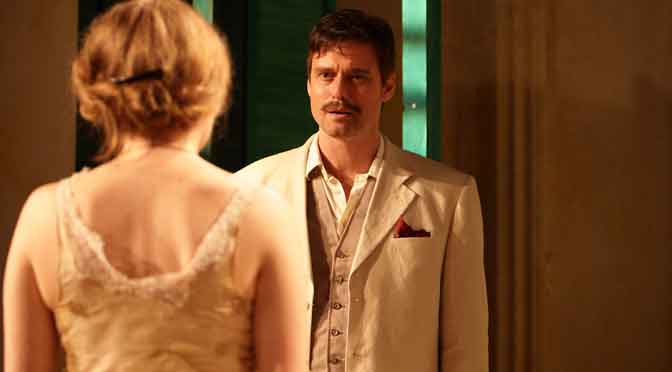It’s the fourth time that writer Mike Poulton has adapted Uncle Vanya and it seems that practice makes perfect. Chekhov’s masterful exploration of the human condition is presented boldly, directly and, most notably, with a great deal of humour. Artistic director of The Print Room Lucy Bailey takes charge with a deft touch that highlights the play’s rich complexity. And this tiny theatre has the coup of a stellar cast, led by the magnificent Iain Glenn in the title role. Glenn gives a riveting performance of immense variety and subtlety.
It’s the story of a disastrous summer sojourn. After Vanya’s beloved sister dies, he devotes himself to the professor she married. But Vanya realises the man, played in fine comic style by David Yelland, is a pompous fool while falling in love with his brother-in-law’s new wife. At the same time she starts an affair with his best friend, the excellent William Houston, who in turn is loved by Vanya’s niece Sonya. It’s no big surprise that none of them is happy.
The way Poulton plays with this Chekhovian cliché of misery is delightful. Everyone is bored and everyone is exhausted all the time. Even the roses are “mournful”. All of the players are driven to drink and bemoan the “inexplicable” fact they are old (regardless of their carefully spaced ages). It’s enough to make anyone flee the countryside. But Chekhov and Poulton can see the funny side of boredom as it mixes with the most potent emotions of love and jealousy. Add a touch of madness and you have a strange combination of farce and tragedy that comes close to describing life itself.
The desperation within Uncle Vanya, stemming from a sense of wasted life, is conveyed movingly by Glenn, while Sonya’s self-sacrificing strategy comes across an illuminating performance from Charlotte Emmerson. Alongside the family servants’ acceptance of their lot, embodied in delicious cameos from David Shaw-Parker and Marlene Sidaway, Uncle Vanya becomes a painfully funny play full of faith and grief. In this production, Uncle Vanya is as big and as clever as ever and is not to be missed.
Until 28 April 2012
Photo by Sheila Burnett
Written 30 March 2012 for The London Magazine




